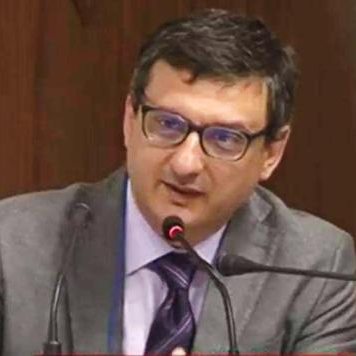Hydrogen Sulfide and H2S Donors in Cardiovascular, Metabolic, and Inflammatory Diseases
A special issue of International Journal of Molecular Sciences (ISSN 1422-0067). This special issue belongs to the section "Molecular Pathology, Diagnostics, and Therapeutics".
Deadline for manuscript submissions: 20 June 2024 | Viewed by 1279
Special Issue Editors
2. Interdepartmental Research Centre "Nutraceuticals and Food for Health (NUTRAFOOD)", University of Pisa, 56126 Pisa, Italy
3. Interdepartmental Research Centre of "Ageing Biology and Pathology", University of Pisa, 56126 Pisa, Italy
Interests: cardiovascular pharmacology; gasotransmitters; nutraceuticals; hydrogen sulfide; brassicaceae; isothiocyanates; vascular inflammation; aging; endothelial dysfunction; hypertension; H2S-donors
Special Issues, Collections and Topics in MDPI journals
Interests: H2S; gasotransmitters; cardiovascular pharmacology; ion channels; metabolic pharmacology; synthetic and natural H2S donors
Special Issues, Collections and Topics in MDPI journals
Special Issue Information
Dear Colleagues,
Hydrogen sulfide (H2S) is a pleiotropic endogenous gasotransmitter able to maintain homeostasis in several systems. In recent years, the discovery that the physiological production of H2S resulted in the impairment of several pathological conditions such as hypertension, diabetes, endothelial dysfunction, etc., led to the study of exogenous sources of H2S that are able to compensate for the lack or imbalance of H2S, which are called H2S donors. In this Special Issue, we focus our attention on the role of H2S and /or H2S donors in the physiopathological aspects of cardiovascular, metabolic or inflammatory diseases (including degenerative pathologies derived from the persistence of a chronic subclinical inflammation, such as cancer and neurodegenerative diseases). The demonstration or the speculation about the mechanisms of action by which H2S and H2S donors act in different pathologies will also be appreciated. Finally, the synthesis or the identification of novel natural H2S donors will also be considered of interest for our Special Issue.
Dr. Alma Martelli
Prof. Dr. Vincenzo Calderone
Guest Editors
Manuscript Submission Information
Manuscripts should be submitted online at www.mdpi.com by registering and logging in to this website. Once you are registered, click here to go to the submission form. Manuscripts can be submitted until the deadline. All submissions that pass pre-check are peer-reviewed. Accepted papers will be published continuously in the journal (as soon as accepted) and will be listed together on the special issue website. Research articles, review articles as well as short communications are invited. For planned papers, a title and short abstract (about 100 words) can be sent to the Editorial Office for announcement on this website.
Submitted manuscripts should not have been published previously, nor be under consideration for publication elsewhere (except conference proceedings papers). All manuscripts are thoroughly refereed through a single-blind peer-review process. A guide for authors and other relevant information for submission of manuscripts is available on the Instructions for Authors page. International Journal of Molecular Sciences is an international peer-reviewed open access semimonthly journal published by MDPI.
Please visit the Instructions for Authors page before submitting a manuscript. There is an Article Processing Charge (APC) for publication in this open access journal. For details about the APC please see here. Submitted papers should be well formatted and use good English. Authors may use MDPI's English editing service prior to publication or during author revisions.
Keywords
- hydrogen sulfide
- H2S-donors
- cardiovascular diseases
- metabolic diseases
- inflammatory diseases
- cancer
- neurodegenerative diseases







